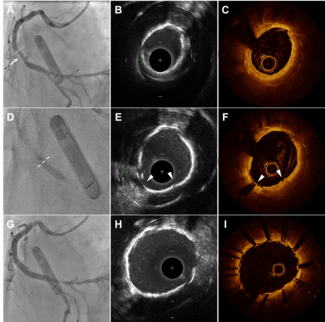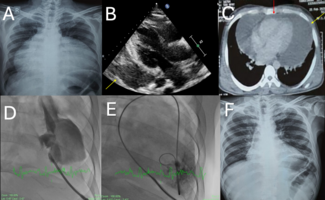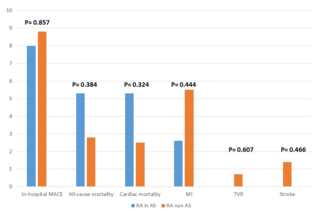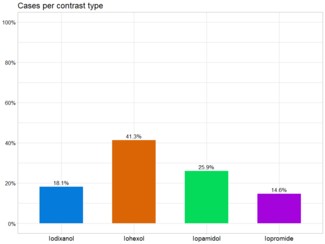Impella-Induced Left Ventricular Microbubbles, A Potential Sign for Hemolysis
Key words: cardiac imaging, cavitation, hemolysis, Impella, microbubbles
We observed left ventricular microbubbles associated with Impella support in the setting of a high-risk coronary intervention. Left ventricular microbubbles may indicate exaggerated shear stress and cavitation phenomenon, potentially leading to hemolysis.
A 65-year-old male with triple-vessel coronary disease, recent repaired abdominal aortic aneurysm, and chronic kidney disease deemed high risk for surgery was referred for coronary revascularization. Given his unprotected left main anatomy, we proceeded with Impella-supported revascularization of the left main, left anterior descending artery, and right coronary artery (Figure 1A). Following a long but successful intervention, we decided to continue with Impella support to maintain renal perfusion after the procedure. After non-traumatic Foley catheter insertion for urine output monitoring, we observed frank hematuria. Labs exhibited hemolysis. Echocardiogram demonstrated bubbles in the left ventricle (Figure 1B and Video 1). Repositioning of the device was undertaken with echocardiographic guidance and resulted in optimal flow parameters and significant decrease in the amount of bubbles in the left ventricle (Figure 1C and Video 2). Twelve hours later, hemolysis was still occurring, as evidenced by a drop in hemoglobin, increase in lactase dehydrogenase, and decrease in haptoglobin. Thus, the decision was made to remove the Impella device. The hematuria resolved by the next day and the hemoglobin remained stable. The patient was discharged from the hospital.
Acknowledgment. We thank the catheterization laboratory, cardiac imaging, and ICU staff of Lakeview Regional Medical Center in Covington, Louisiana for the support provided to this patient.
View Supplemental Video Series Here
From 1Heart Care Consultants, Philadelphia, Pennsylvania; and 2Tulane University Heart & Vascular Institute, New Orleans, Louisiana.
Disclosure: The authors have completed and returned the ICMJE Form for Disclosure of Potential Conflicts of Interest. Dr Abi Rafeh reports personal fees (proctor/consultant) from Boston Scientific, Abbott Vascular, and Shockwave Medical. Dr Quevedo reports no conflicts of interest regarding the content herein.
The authors report that patient consent was provided for publication of the images used herein.
Manuscript accepted June 6, 2019.
Address for correspondence: Henry C. Quevedo, MD, Heart Care Consultants, 5600 Chestnut Street, Philadelphia, PA 19139. Email: henryquevedod@gmail.com



















